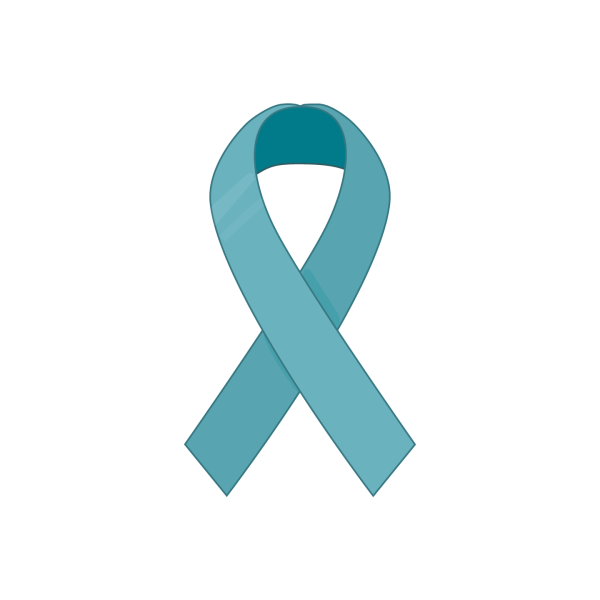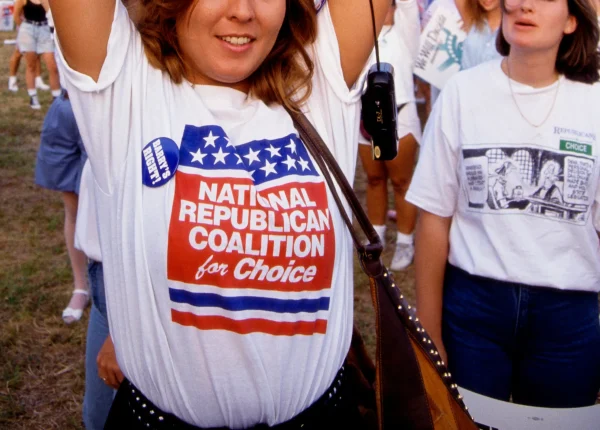Three Early Signs That Your Relationship Is Abusive
5 percent of men and 42 percent of women have experienced verbal, mental or emotional abuse from their intimate partners in the United States. Another 29 percent of women and 10 percent of men experienced physical violence. With these staggeringly high statistics, one wonders if there are any early relationship red flags that might indicate potential future abuse. Unfortunately, because of how ambiguously toxic behaviors are often presented, it can be difficult to tell what is ‘okay’ and what is crossing a line, especially when someone is getting to know a romantic partner for the first time. With this in mind, I spent months trying to come up with criteria that will allow people to not only look out for these signs in their own romantic relationships, but in the relationships of the ones close to them. No one ever deserves to go through the hell, pain and suffering of being tortured and belittled by a person who’s meant to have your back no matter what.
The first red flag is love-bombing. Love-bombing is one of the most common forms of emotional abuse and is most prominent in the “honeymoon phase” of romantic relationships. Love-bombing is when in the early stages a victim is bombarded with love, attention and validation that never seems to end. This is done with an ulterior motive: the abuser needs to manipulate the victim into growing extremely emotionally dependent on them. During this time they will tell the victim everything that they want to hear, as they boost their confidence and validate their life’s nuances. The victim will also be complimented on their looks and achievements while the abuser gushes about how they have never been this happy. The abuser will often drop plans with friends, family and other important priorities to spend time with the victim, tricking them into thinking that they are at the center of the abuser’s universe. Right before things start to go downhill, victims will often gush about how the relationship is “too good to be true.” The unfortunate reality is that yes, it is. As the victim grows visibly more dependent on the abuser, the abuser will take that as a sign that it’s time to pull away. At this point they know that they have successfully lured the victim exactly where they want them to be. The mask can now come off and the abuse can begin. The ‘raw’ and ‘intense’ love demonstrated at the beginning stages of the relationship was never real– it was put in place to make the victim obsessed with the attention that the abuser gave them. This codependency is what will make it nearly impossible for the victim to leave when things start to get bad.
The second red flag is if the relationship feels like it is moving too quickly. There are healthy plans that can be made in the early stages of a relationship– planning a fancy date, going away for a weekend or meeting close friends and family. These plans celebrate a reciprocated effort as a couple slowly begins to introduce each other into their personal lives. In a healthy relationship things like meeting each other’s extended family, conversations about moving in together and eventually marriage often take anywhere from several months to a year to unfold. In toxic relationships, however, these conversations are often had within weeks of a couple being together. During this time, people may have already said their “I love yous” as discussions about getting married, starting a family or moving in together are already being held. It is important to pay attention to these patterns and consider that the only factor that will tell you if your partner is “the one” is time. There is absolutely no reason for things to move this quickly in the early stages of a relationship other than an abuser trying to manipulate their partner into thinking that they care enough about them to include them in their lives forever. What makes this especially vile is that the abuser has no real intention of actually committing to any of the things they say. The abuser may gush about how badly they want to marry the victim, or how many children they want to have with them, but once again, this is all just the abuser taking full advantage of the victim’s desire for a loving, long-term relationship by saying whatever it takes to keep them tight in their grip.
An important thing to consider is that it isn’t uncommon for victims to feel uncomfortable with the intensity of how quickly toxic relationships move in the beginning stages. Unfortunately, they will often not voice their concerns as they will excuse these behaviors to be the abuser’s personality or love language. My best advice is to always–and I can’t emphasize this enough– always trust your gut. If this constant bombardment feels like it’s too much too soon, this is your time to address these concerns to your partner. Your partner’s reaction to the confrontation will tell you everything that you need to know about them. If they genuinely seem embarrassed and sorry for their behavior and work on fixing the problem, that shows your partner respects your feelings and boundaries. If they instead try to manipulate or guilt you by telling you that you are ungrateful or overreacting, that is a sign that they do not respect you. This lack of accountability and refusal to own up to wrongdoings will turn into a pattern that will continue throughout the relationship.
The third and final red flag is if a romantic partner constantly talks about their ex in a negative light. There is a time and place to talk about former partners in relationships in a healthy and productive manner, but somebody who continuously and voluntarily brings up their ex-partner shows the blatant obvious that there is unresolved baggage, and in some cases secrets. Abusive partners will spend a lot of time raving about their ex-partners, often using the words “insane” and “crazy” to describe them. This is often not true and is done with the intention of leaching out a pitiful response from the victim. An important point to consider is that if someone’s ex was genuinely terrible, the topic of conversation would be the abuse, not the person. This highlights that abusers often bring up how “crazy” their exes were, yet never have any evidence of what exactly this “craziness” was. If they do, the evidence is often presented out-of-context. They will talk about how clingy and controlling their ex partner was, yet conveniently leave out details in which the abuser consistently cheated or withheld affection from their ex. Twisting the narrative allows abusers to have power over their partner. It also gives them the rush of feeling like they’re getting away with something, which feeds their desperate need for constant attention and appraisal. This is done to intentionally blur the victim’s ability to see the bigger picture and piece together the fact that their current partner may actually be the toxic one.
I once held a naive belief that there was good in everyone, and that all it took for bad people to change was meeting a kind-hearted person which would show them that there is beauty and happiness in everything. We pity toxic people because we have always been told that they are “lost” or “hurting,” but the truth is that these are lies that society made up so that we don’t hold abusers accountable. The sad reality is they are perfectly satisfied with being the way they are because abusers love the fact that they can take any seemingly confident, loving and determined person and turn them into an insecure, jealous and overbearing mess who begs and pleads for every drop of affection that they can get. In the words of Alysa Mounce: “There’s a misconception that if you try to empathize with a toxic person and try to understand them, you’ll somehow play a role in healing the injured parts of them. It’s a really beautiful and compassionate thought, but there’s one problem with it: it won’t change them, but it will destroy you.”
Your donation will support the student journalists of Saint Louis University. Your contribution will help us cover our annual website hosting costs.










Ronald Slater • Nov 18, 2021 at 5:13 pm
Well written opinion by copy editor, Anastasia Hanonik.
I simply want to raise awareness of the temptation to read too much into Department of Justice and CDC statistics regarding domestic violence. Three myths:
MYTH 1: Some well-meaning people like to cite that, in the United States, 22%–35% of women who visit hospital emergency rooms do so because of domestic violence.
FACTS: This claim has appeared in countless books and articles—for example, in the leading textbook on family violence, Domestic Violence Law, and in the Penguin Atlas of Women in the World. The Penguin Atlas uses the emergency room figure to justify placing the U.S. on par with Uganda and Haiti for intimate violence.
What is the basis? The Atlas provides no primary source, but the editor of Domestic Violence Law cites the 1998 Justice Department study, as well as a 2009 post on the Centers for Disease Control website. But the Justice Department and the CDC are not referring to the 40 million women who annually visit emergency rooms, but to women, numbering about 550,000 annually, who come to emergency rooms “for violence-related injuries.” Of these, approximately 37% were attacked by intimates. So, it’s not the case that 22%-35% of women who visit emergency rooms are there for domestic violence.
The correct figure is less than half of 1%.
MYTH 2: One in five in college women will be sexually assaulted.
FACTS: This incendiary figure is everywhere in the media today. Journalists, senators and even President Obama cite it routinely. Can it be true that the American college campus is one of the most dangerous places on earth for women?
The one-in-five figure is based on the Campus Sexual Assault Study, commissioned by the National Institute of Justice and conducted from 2005 to 2007. Two prominent criminologists, Northeastern University’s James Alan Fox and Mount Holyoke College’s Richard Moran, have noted its weaknesses:
“The estimated 19% sexual assault rate among college women is based on a survey at two large four-year universities, which might not accurately reflect our nation’s colleges overall. In addition, the survey had a large non-response rate, with the clear possibility that those who had been victimized were more apt to have completed the questionnaire, resulting in an inflated prevalence figure.”
Fox and Moran also point out that the study used an overly broad definition of sexual assault. Respondents were counted as sexual assault victims if they had been subject to“attempted forced kissing”or engaged in intimate encounters while intoxicated.
Defenders of the one-in-five figure will reply that the finding has been replicated by other studies. But these studies suffer from some or all of the same flaws. Campus sexual assault is a serious problem and will not be solved by statistical hijinks.
MYTH 3: Women earn 77 cents for every dollar a man earns—for doing the same work.
FACTS: No matter how many times this wage gap claim is decisively refuted by economists, it always comes back. The bottom line: the 23-cent gender pay gap is simply the difference between the average earnings of all men and women working full-time. It does not account for differences in occupations, positions, education, job tenure or hours worked per week. When such relevant factors are considered, the wage gap narrows to the point of vanishing.
Wage gap activists say women with identical backgrounds and jobs as men still earn less. But they always fail to take into account critical variables. Activist groups like the National Organization for Women have a fallback position: that women’s education and career choices are not truly free—they are driven by powerful sexist stereotypes. In this view, women’s tendency to retreat from the workplace to raise children or to enter fields like early childhood education and psychology, rather than better paying professions like petroleum engineering, is evidence of continued social coercion. Here is the problem: American women are among the best informed and most self-determining human beings in the world. To say that they are manipulated into their life choices by forces beyond their control is divorced from reality and demeaning, to boot.
(Hat tip: Professor Christina Hoff Sommers)